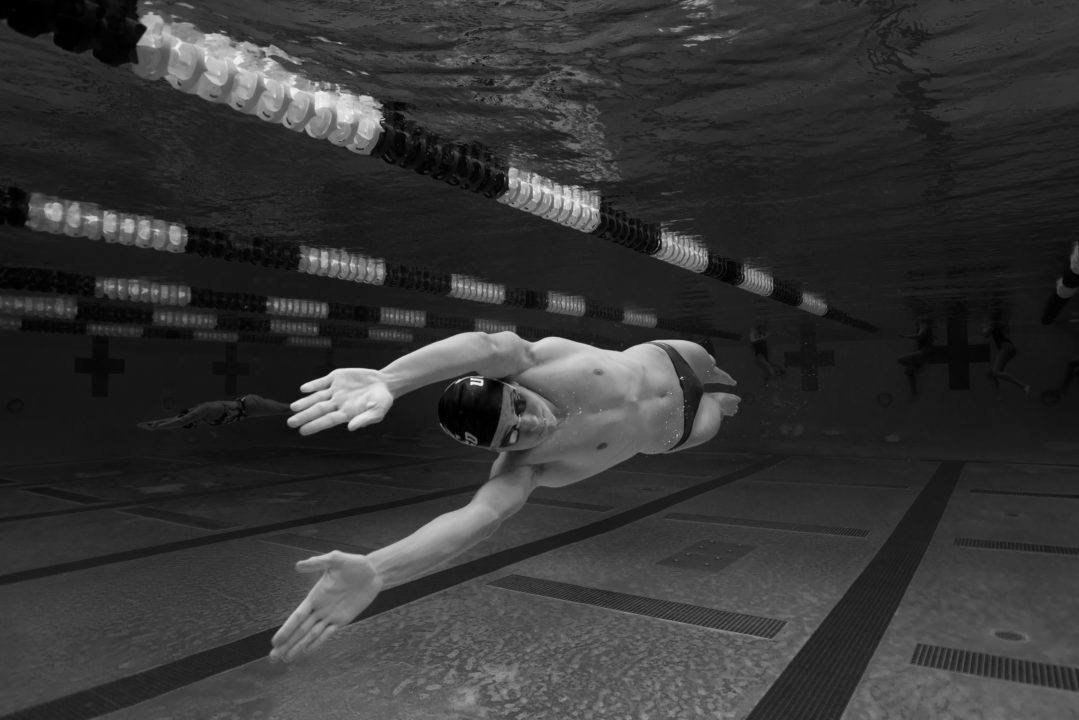Courtesy of George Kennedy
In June of 2016, I retired from Johns Hopkins after coaching there for 31 years. Following a year recovering from an ankle replacement, and getting away to spend more time with family, it became very evident that retirement was not for me. Something was missing. This retirement gig was not working, and it all became obvious when my wife actually went back to work an extra day! So much for spending more time with family!
Never before had there been enough time to look back, to honestly assess what worked, what didn’t, to introspect, and provide self-feedback. It was an amazing time of learning, and part of that learning was determining what would be next. It wasn’t that I missed the coaching hours (despite always enjoying the morning practices). Missed was the connection with others in the coaching world. I missed the athletes, the fellow coaches, and our relationships that comes from working every day with others. I missed contributing to their lives and them to mine. But what I wanted to know is “What’s the next biggie in coaching, and why? How can I contribute to the next big emphasis in coaching
Peer Coaching and Partner Coaching
I am thankful to Coach Bill Roberts, his staff and athletes at the US Naval Academy to have welcomed me to their pool deck on Friday, December 29. It was an opportunity to work with their team on peer coaching and partner coaching. We spoke to leadership and peer coaching and the swimmers selected 5 teammates who they wanted to lead 5 different skills. And we had fun naming each group such as: The Navy flight School for teaching starts; Turns were the Navy frogmen, and we had learning stations including starts, free and back turns, breast and fly turns, underwater kick outs and one drill called kickdrill. We focused on each area in stations, and the athletes rotated from station to station while the leader stayed. Following the peer coaching, we worked on partner coaching. We asked each of the athletes to partner up one on one with a teammate. The focus on partner coaching was working on one skill that the athlete felt they needed to improve most. The athletes were engaged and the coaches roamed the deck listening in on the communication and dialog. There was limited time to effectively teach, but that is the world for the athletes. Their focus is short and we limited each group to 12 minutes.
The athletes were asked what they learned, how it all went, and why they felt it was a good session (what’s in it for me? >>>What’s in it for us?)
—”it was great
—”it is fun and different in a purposeful way”
—” in coaching the skill, I learned more about what I could do better”
—” 40 of us coaching is more effective than just the 3 coaches”
—”feedback is immediate, and I have more time to work on the skill”
—” we can be all into the shorter amount of time, then take what we learn and apply it to practice”
Five years ago our teams at Johns Hopkins began peer coaching and partner coaching for an hour every Friday afternoon. Friday became the session of 1 hr of what the coaches think we should do and 1 hour of peer/partner coaching. Our teams had our best performances during those years. Whether or not the performances were solely due to peer coaching, I do not know. But what happened was greater feedback, introspection, and a greater emphasis on everyone wanting to be at practice. It came full circle, in 2016, During my last year of coaching that this style was working when athletes were giving one another feedback during warmup, kick sets, streamlining on a daily basis. They had learned the value of peer coaching, of contributing to one another’s success, and in a really organic way.
As coaches, we needed to teach the skills properly to the team earlier in the year so that there would be a connection to doing the skill correctly, and practicing the skill properly. Peer Coaching is about the athletes putting the trust into the coaches and then finding the way to effectively teaching. It works best with mature teams, but anytime you get a young kid to demonstrate in practice you are peer coaching. They love being chosen!
All the best for a super 2018–
George
About George Kennedy
George Kennedy spent 30 years as the head coach of Division III program Johns Hopkins, where he was named a 7-time NCAA Division III National Coach of the Year. His teams won 15 conference titles, 16 NCAA event titles, and finished in the top 10 at the NCAA Championships 27 times in his tenure. In March of 2014, he was named one of the “World’s 50 Greatest Leaders” by Fortune Magazine.

Agree and love this article! Thank you, Coach!
Thank you for an insightful article George. You are a great guy!